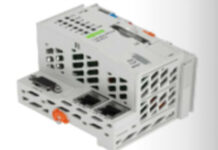The global cognitive computing market was valued at US$ 46.54 billion in 2024 and is projected to reach US$ 285.72 billion by 2033, reflecting a Compound Annual Growth Rate (CAGR) of 22.30% during the forecast period from 2025 to 2033.

Cognitive computing solutions are expected to experience significant growth as the adoption of artificial intelligence and integrated cloud platforms becomes more prevalent. This trend is projected to be a key driver of industry expansion throughout the forecast period. Additionally, the increasing demand among major business organizations to analyze vast amounts of data to assess the risks associated with strategic ventures is further accelerating the development of the cognitive computing market. As companies seek to leverage data analytics for informed decision-making, the relevance and application of cognitive computing technologies will continue to rise, positioning them as essential tools for navigating complex business landscapes.
Cognitive Computing Market Key Takeaways
- By Technology, Natural Language Processing (NLP) has established itself as the leading technology in the cognitive computing market, commanding over 42.5% market share.
- In the realm of end use, Banking, Financial Services, and Insurance (BFSI) organizations are recognized as front-runners, holding more than 25% market share in the cognitive computing market.
- When it comes to deployment, cloud-based architectures dominate the cognitive computing market, accounting for over 71% market share.
Regional Analysis
North America’s Dominance in the Cognitive Computing Market
North America stands as a dominant force in the global cognitive computing market, commanding over 40% market share.
- Rapid Growth Driven by Advanced Technological Infrastructure: The cognitive computing market in North America is expanding rapidly, fueled by the region’s advanced technological infrastructure. This shift is particularly pronounced in critical industries such as finance and healthcare.
- Fostering Innovation Through Major Tech Firms and Startups: The presence of major technology firms, alongside a dynamic startup ecosystem, plays a crucial role in fostering innovation and competition within the North American cognitive computing landscape.
- Emphasis on Data Analytics and Personalized Customer Experiences: Another significant driver of demand for cognitive computing solutions in North America is the growing emphasis on data analytics and personalized customer experiences. By utilizing cognitive solutions, companies can enhance customer interactions, providing personalized recommendations and improving satisfaction.
Expansion of the Cognitive Computing Market in Europe
The cognitive computing market in Europe is experiencing significant expansion, driven by a growing recognition among businesses of the importance of these technologies in enhancing both productivity and compliance.
- Importance of Data Protection Regulations: One of the key factors contributing to this market growth is the presence of strict data protection regulations across Europe, such as the General Data Protection Regulation (GDPR). These regulations compel organizations to adopt cognitive solutions that prioritize security while still fostering innovation. This dual focus on compliance and innovation is critical in maintaining customer trust and confidence.
- Applications in Smart Manufacturing: European companies are increasingly utilizing cognitive computing for various applications, particularly in smart manufacturing. This improves manufacturing efficiency, reduces costs, and minimizes waste, allowing companies to respond more swiftly to market demands.
- Enhanced Customer Service Solutions: Another prominent application of cognitive computing in Europe is enhanced customer service. Businesses are leveraging AI-driven chatbots, natural language processing, and data analytics to provide more personalized and efficient customer interactions. As a result, companies can build stronger relationships with their clients and enhance customer loyalty.
Rapid Growth of the Cognitive Computing Market in Asia Pacific
The cognitive computing market in the Asia Pacific region is experiencing remarkable growth, primarily fueled by an increasing emphasis on digitalization and substantial government initiatives aimed at advancing artificial intelligence (AI) technologies.
- Leadership of China and India: Countries like China and India are at the forefront of this growth, making significant investments in cognitive solutions to enhance various sectors. Both nations are leveraging their technological capabilities to develop and implement AI-driven applications that improve efficiency and competitiveness in industries such as finance, healthcare, and logistics.
- Rise of Mobile Technologies and E-Commerce: The rising adoption of mobile technologies and the booming e-commerce sector are further fueling demand for cognitive applications across the region. As more consumers engage with mobile platforms for shopping and services, businesses are increasingly seeking ways to enhance their operations and improve customer experiences. This optimization leads to increased customer satisfaction and drives sales and revenue growth.
- Government Initiatives Supporting AI Advancement: Governments in the Asia Pacific region are actively promoting the growth of the cognitive computing market through various initiatives. These include funding research and development projects, establishing AI-focused policies, and fostering collaborations between public and private sectors.
Top Trends Escalating the Cognitive Computing Market
Growing Adoption of Cloud-Based Solutions: The growing adoption of cloud-based solutions is significantly reshaping the operational landscape for many organizations. These solutions offer enhanced scalability, allowing businesses to adjust their resources based on fluctuating demands without incurring excessive costs. Companies can easily scale up during peak times or down during slower periods, optimizing resource allocation and improving operational efficiency.
Integration with IoT Technologies: The integration of Internet of Things (IoT) technologies with cloud computing is revolutionizing industries by facilitating real-time monitoring and predictive maintenance. This connectivity enables companies to monitor equipment performance in real time, predicting potential failures before they occur and scheduling maintenance accordingly.
Focus on Ethical AI and Transparency: As cognitive computing continues to evolve, there is a heightened emphasis on ethical AI and transparency in application development. Organizations are increasingly recognizing the importance of creating AI systems that are effective, equitable, and accountable. This focus on ethical considerations is crucial for building trust among users, especially in sensitive areas like healthcare and finance, where the implications of AI decisions can have significant consequences.
AI and ML Integration: The integration of artificial intelligence (AI) and machine learning (ML) is enhancing organizations’ data processing and decision-making capabilities. This capability is particularly beneficial in environments where timely and informed decision-making is essential.
Increasing Demand for Advanced Data-Driven Insights: Across various industry sectors, there is a rising demand for advanced data-driven insights. Companies are increasingly seeking to leverage data analytics to gain a competitive edge and enhance their operational strategies. This trend reflects the growing recognition of data as a critical asset in decision-making processes.
Healthcare Sector’s Reliance on Cognitive Computing: In the healthcare sector, the reliance on cognitive computing is becoming increasingly vital as organizations strive to improve patient outcomes. This reliance on cognitive computing improves the quality of care and contributes to better health management and outcomes for patients.
Cognitive Computing Market Segmentation
By Technology
Natural language processing (NLP) has emerged as the predominant technology in the cognitive computing market, primarily due to its remarkable ability to decode and generate human language at scale. This proficiency makes NLP an invaluable asset for many organizations operating within the cognitive computing landscape.
Numerous companies rely on NLP systems that are specifically designed to manage hundreds of millions of text queries daily. These queries often originate from various sources, including social media, email correspondence, and internal communication channels. By effectively processing such vast amounts of data, NLP enables organizations to gain insights, improve customer interactions, and enhance overall efficiency in their operations.
By End Use
Banking, financial services, and insurance (BFSI) organizations are recognized as front-runners in the cognitive computing market. Their success is largely attributed to their core operations, which revolve around managing vast volumes of data that require swift and intelligent processing. When BFSI institutions adopt cognitive computing, they implement a comprehensive strategy that integrates multiple layers of artificial intelligence.
This includes NLP chatbots for frontline customer service, deep learning models for fraud detection, and pattern recognition engines for providing personalized investment advice. This holistic approach effectively addresses the sector’s critical needs for security, compliance, and agility in an ever-evolving digital marketplace.
By Deployment
Cloud-based architectures hold over 71% market share in the cognitive computing market, facilitating the majority of market initiatives. Their success can be attributed to several factors, including flexible resource provisioning, rapid implementation timelines, and streamlined updates.
For small and mid-market enterprises, the cloud plays a crucial role in democratizing access to cutting-edge cognitive tools, allowing these businesses to leverage advanced technologies that were previously out of reach. This shift empowers them to compete more effectively in an increasingly data-driven landscape.
Recent Developments in the Cognitive Computing Market
- Synchron’s Unveiling of Chiral™: In March 2025, Synchron, a category-defining brain-computer interface (BCI) company, unveiled its roadmap to Chiral™, a foundation model of human cognition. This marks a significant milestone in the emergence of Cognitive AI—artificial intelligence trained directly on human neural activity. Synchron is advancing BCI from supervised to self-supervised learning, accelerating the transition by leveraging large-scale neural data combined with advanced NVIDIA AI-powered computing.
- VERSES AI Inc.’s Launch of Genius: In February 2025, VERSES AI Inc., a cognitive computing company specializing in next-generation intelligent software systems, announced that it expects to launch the commercial version of Genius in April. Genius is a suite of tools designed for creating autonomous intelligent agents that can continuously reason, plan, and learn.
- Databricks’ Major Funding Round: In December 2024, Databricks secured a remarkable $10 billion funding round, elevating the company’s valuation to $62 billion. This investment, spearheaded by Thrive Capital along with other prominent venture capital firms, is notable as the largest venture capital infusion of the year in the cognitive computing sector. This funding will bolster Databricks’ efforts to develop cutting-edge AI products, explore strategic mergers and acquisitions, and expand its global presence.
Global Cognitive Computing Market Key Players
- Acuiti
- Cisco Systems
- Cognitive Scale
- Cold Light
- CustomerMatrix Inc
- Cyberlytic
- Cylance
- Darktrace
- Enterra Solutions
- Hewlett Packard Enterprise
- Indico
- International Business Machines Corporation
- Microsoft Corporation
- Numenta
- Orbital Insight
- Palantir Technologies
- Planet labs
- Ross Intelligence
- Saffron Technology
- SparkCognition Inc
- Vicarious
- Other Prominent Players
Market Segmentation Overview:
By Technology
- Automated Reasoning
- Natural Language Processing
- Machine Learning
- Information Retrieval
By Application
- Healthcare
- BFSI
- Security
- Retail
- IT & Telecom
- Aerospace & Defense
- Others
By Deployment
- On-premises
- Cloud
By Geography
- North America
- Europe
- Asia-Pacific
- Latin America
- Middle East and Africa
Source: https://www.astuteanalytica.com/industry-report/cognitive-computing-market

















